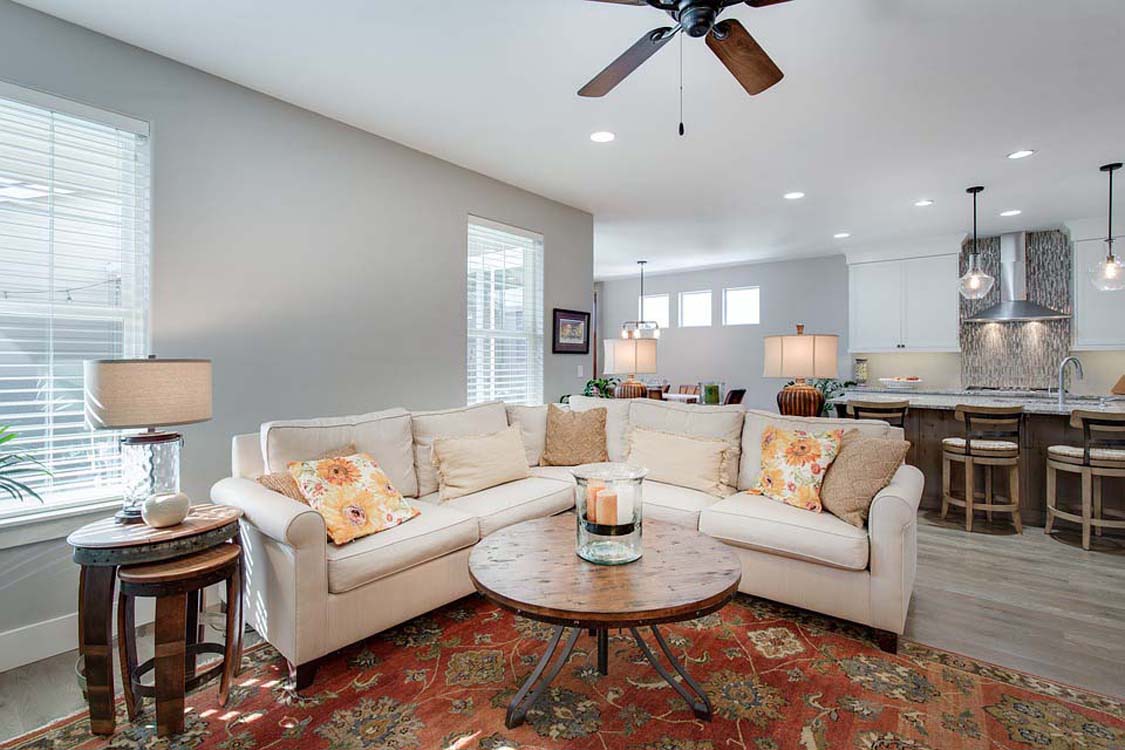Starting a home renovation can be overpowering, particularly if you haven’t completed one before. Whatever the project, your remodel will involve so many details it can simply become daunting.
Use these steps and tricks for planning for a home redesign to choose how to order, prioritize and build a detailed home job plan that will assist reduce your stress level while keeping you on budget and on agenda.
How exactly to Plan a Full remodels in 5 Steps
1. Build a Detailed Home Improvement Project Plan
The first step in a remodeling project is to build up an idea that obviously states the goal for your renovation and includes designing inspiration and an overview of the task that should be completed. Visit: Karma Construction Group
Your project plan should also include:
Plans or sketches of your finished task.
A list of needs and wants for your project.
Project steps divided into DIY steps and steps that will require a professional.
At this time in planning for a home reconstruction, investigate local zoning regulations and permits. Make sure your area is zoned for your remodel (some renovations like garage area conversions are not allowed all over the place) and discover if you’ll desire a permit. If you are completing a project that will change the structure of your house or the use of an area, you will most likely desire a permit. Wait to apply for permits until you’ve hired a team and built a task timeline.
When to start out: 6 to 12 months before you’d like to get started on your project
2. Set a Project Budget
The next phase when planning for a home renovation is to determine your finances and financing. Your financial budget should include the expenses for permits and building materials, labor costs and the cost of decorations or plastic touches.
To build your budget:
Determine how much you want to invest and finalize funding. Reserve at least 10% of your cover unexpected costs.
Request cost estimations from professionals.
Price out all required materials.
In case your cost estimates do unfit in your financial budget, use your do-it-yourself job plan from step one to eliminate job elements that are a lesser priority. Request cost estimates from multiple contractors for the best option for your budget.
When to start out: 3 to six months before starting your project
Read Next: How exactly to Budget for a Home Renovation
Handshake With Contractor Over Redecorating Plans
3. Hire Contractors
Next in your home project planning, you’ll need to employ your team. Don’t choose your contractors on cost quotes by itself. When interviewing and selecting your contractors, also consider:
Years of experience: A contractor who’s been doing business for years makes them a safer guess than person who is new to the business.
Contracting license: Ensure that your contractor has gone through all the steps had a need to obtain any required certifications specific to their line of work.
Qualification of insurance: Contractors should have employees’ settlement and responsibility insurance for the kind of work they perform.
References: Demand and call recommendations. This is a good way to make sure your company isn’t just good in writing.
Payment program: An established contractor won’t ask you to pay the entire price upfront, and the BBB advises never to. However, it’s important to go over payment conditions before construction starts. In some instances, it’s easier to spend just a little extra to get someone you’re comfortable working with.
Use this checklist for hiring contractors to complete the process.
If you’re hiring multiple contractors for a job, determine who’s in charge before the project commences to avoid distress or slowdown later.
Doing a DIY task? In this step, be sure to have the skills and support you will need to get the job done without hired helped, including confirming the assistance of friends of family for when you project starts.
When to start: 2-3 3 months before your start date
4. Build a Timeline
Once you have your financial budget and team set up for your remodeling plan, it’s time to construct your timeline. First, choose a desired start time, or if you’re expecting to have it completed by a particular time frame, work backward from that night out instead. Sit back with your contractors to look for the amount of time each part of the job will take. Discuss which steps of the remodel have to be completed first, just how long they’ll take and which task helpings can be completed concurrently.
Additionally, be certain your timeline:
Includes time to completely clean out the project area.
Permits the shipment of materials.
Makes up about any vacations your contractors might take off.
Employ a calendar to symbol out each step of the job. Set a conclusion date which includes a few days’ worthy of of wiggle room for surprising issues. Confirm with your contractors or team members that the timeline is realistic and helps to keep you within budget.
When to start out: 2 to 3 three months before your start date
5. FINISH OFF and Plan YOUR HOUSE Renovation
Given that your home task planning is nearing a finish, it’s time and energy to prep the area and make programs to avoid using the area while it’s under construction.
Whether or not you should live at home during construction depends upon what work is being done. Thinking about having major work done to your kitchen? Create a temporary place to prepare and eat and remove your dishes and modest kitchen appliances. Renovating the master suite? Make new sleeping plans and find somewhere to store your furniture. If you’re planning a whole home renovation, you might like to re-locate completely for a short while.






